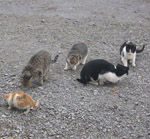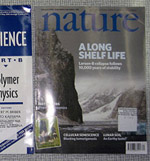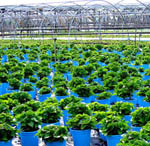Valuing ecosystem services from wetland restoration
 Economics,
Economics,  Restoration,
Restoration,  Wetland
Wetland How much are the ecosystem services from wetland restoration worth to society? Aaron Jenkins and fellow researchers from Duke University and USGS try to put a dollar figure on three ecosystem services from a program restoring forested wetlands in the Mississippi Alluvial Valley. The region represents the U.S.'s largest floodplain where 72% of the hisoric bottomland hardwood forests have been lost.
The study found that restoration projects under the Wetland Reserve Program have led to improvements in nutrient retention, greenhouse gas reduction, and waterfowl recreation with a social welfare value of $1,435 - $1,486/hectare/year. This annual benefit is greater in one year than the total expenditure of the program ($980 per hectare), which includes the payment to the landowner and a cost-share on the restoration.
To come up with the social welfare value for greenhouse gas reduction they used USGS data to calculate the net carbon decrease from restoring agriculture to wetland forest. They then translated that into dollars based on an IPCC estimate of the value of the damages avoided for every metric ton of carbon dioxide reduced. They came up with a value between $171-$222/hecatare/year
Similarly the researchers used the USGS data to calculate the net nitrogen reduction from restoring agricultural land to wetland forest. They calculated the economic value to society based on a model estimating potential market prices for nitrogen reduction credits in a hypothetical trading scheme between farmers and wastewater treatment plants trying to meet nitrogen control mandates. They arrived at a value of $1,248/hectare/year.
They calculated waterfowl recreation values based on an estimate of the increase in hunting days using a model developed from a prior study and arrived at a value of $16/hectare/year.
Determining the economic value of ecosystem services from restoration is crucial because it clarifies for society what the benefits are from conservation measures. As this study shows, the return on taxpayer investment is compelling for the Wetland Reserve Program when expressed in economic value. This value would have been even greater if the study had included other ecosystem services in the analysis.
The researchers also looked at existing and potential private market values for the ecosystem services to understand what incentives landowners might have to restore wetlands on their property without government payment. Under existing markets, they calculated that the landowners could earn about $70/hectare/year, which includes leasing the land for duck hunting and trading carbon credits on the voluntary Chicago Climate Exchange.
Meanwhile farmers in the region earn on average $400/hectare/year in crop yield and subsidies. This shows a clear inefficiency in the market in which decisions made on personal interest alone lead to less than ideal societal outcomes. This provides compelling justification for government intervention through the Wetland Reserve Program from an economics perspective.
Alternatively, private markets could be developed to better incorporate the societal welfare values of ecosystem services. The researchers estimate that if a mitigation market for nutrient reduction credits was developed and a cap and trade system was established in the U.S. for CO2, the private market value of the ecosystem services would rise to $1,035/hectare/year - more than twice as high as average annual agricultural income in the region.
--Reviewed by Rob Goldstein
Jenkins, W., Murray, B., Kramer, R., & Faulkner, S. (2010). Valuing ecosystem services from wetlands restoration in the Mississippi Alluvial Valley Ecological Economics DOI: 10.1016/j.ecolecon.2009.11.022




Reader Comments